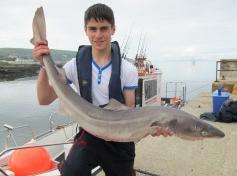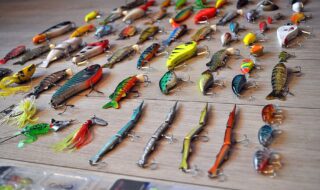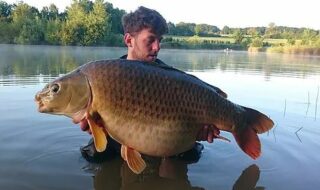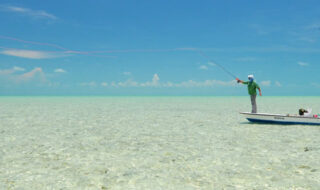THERE have been an increasing number of sporadic but significant hauls of spurdog (Squalus acanthias) encountered by Cornish fishermen in recent months.
Just last week a Newlyn based trawler accidently caught more than 10 tonnes of spurdog while fishing for John Dory around the Isles of Scilly.
This meant damaged fishing gear, lost fishing time and a great deal of frustration for the skipper involved.
To make it even worse, under current EU fishing rules not one of the spurdog could be landed for human consumption or sold.
Cornish fishermen are no longer able to land spurdog because of stock status fears that led to a zero Total Allowable Catch (TAC) being introduced in 2010, since when no landings of spurdog have been allowed by the European Union (EU).
A zero TAC for spurdog does not mean a zero take or zero fishing mortality on the stock, as spurdog are widespread and locally abundant throughout the Western Approaches and other areas of the North East Atlantic.
As there are accidental by-catches of spurdog in many mixed fisheries, not just in Cornwall but around the UK, this inevitably leads to a level of fishing mortality of spurdog.
Under the current EU management regime these fish must be discarded whether they are dead or alive.
There is no real benefit for the stock or and Cornish fishermen have been at the forefront of working with scientists from CEFAS and policy makers from DEFRA since 2010 to improve management measures.
At the heart of this ongoing working relationship is a desire to improve genuine, rather than cosmetic, management of spurdog while providing legitimate flexibility within the future landings obligation to account for unpredictable and unavoidable spurdog catches – that is, allowing the landing of dead spurdog.
The Cornish Fish Producers’ Organisation (CFPO) in conjunction with CEFAS and DEFRA is now developing a pilot project using a real time reporting system, similar to that used for the cod recovery programme in the North Sea.
The project will be carried out in the Western Approaches/Celtic Sea (ICES Divisions VIIe-j).
Fishermen are asked to report any spurdog catches within pre-defined reporting grids and that information can then be fed back to other skippers.
It is envisaged that the project will assist skippers by giving them up-to-date information on spurdog movements and allow skippers to make informed decisions about potential interactions.
This will hopefully reduce the occurrence of significant spurdog catch events and contribute to the perceived stock improvement being witnessed by fishermen.
It will not result in a complete avoidance of spurdog catches. The CFPO is therefore calling for an ability to land a marketable dead spurdog by-catch with a nominal landing allowance that does not incentivise targeting of the stock.
This proposed solution allows for the ongoing recovery of spurdog in the North East Atlantic by reducing fishing induced mortality, further improving scientific understanding of spurdog and its interactions with fishermen, while allowing incidental dead spurdog by-catch to be landed and marketed.
This would appear be the most logical option for a way forward and of course would be in the interests of fishermen, scientists, managers and conservation.
International support for this initiative was given at the most recent North Western Waters Advisory Council (NWW AC) in July, with backing from all present at the meeting and a willingness from other member states to be actively involved.
Paul Trebilcock, chief executive of the CFPO, said: ‘Progress has been frustratingly slow on this issue. But credit must go to the skippers and crews who have remained engaged and continue to work with scientists and policy makers.
‘There is no question in my mind that spurdog populations are increasing throughout the Western Approaches and beyond. This perception is being echoed by fishermen across Europe.
‘I genuinely believe that DEFRA and CEFAS understand that the current EU management regime for spurdog isn’t compatible with the Landing Obligation and are committed to changing it.
‘George Eustice and his DEFRA team have clearly stated that the UK position will be to seek a landing allowance to stop the unnecessary waste of dead by-caught spurdog as part of the pilot project we are involved in.’
FISHUPDATE





